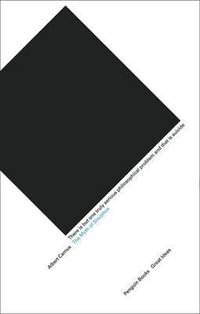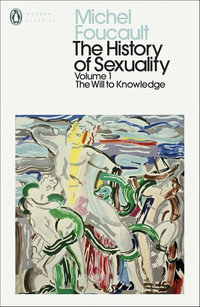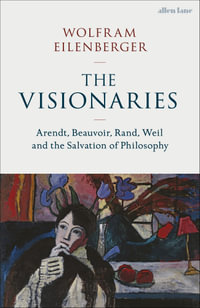Principles of Non-Philosophy is a treatise on the method, axioms and objectives of non-philosophy. The book represents Fran?ois Laruelle's mature philosophy, bringing together all the elements of his thought developed over the preceding twenty years and laying the foundations for his later work. Arguably Laruelle's magnum opus, the book contains a history of the development of non-philosophy, a novel conception of science, a discussion of non-philosophical causality, and new theories of the subject and object of thought. As well as presenting the method and principles of non-philosophy, the book introduces Laruelle's novel theory of 'non-epistemology' or 'unified theory of thought'; in other words his transformation of what is normally referred to as epistemology or philosophy of science. Here philosophy and science are used to challenge each other and are used in the creation of new theories that break out of the trap of philosophy's narcissistic practices and the narrowness of scientific research. This allows Laruelle to develop a new practice of thought, from the Real rather than a realism, that changes the way we think about the traditional philosophical problem of subject and object.
Industry Reviews
At last Laruelle's first full articulation of non-philosophy is available in English, a book every bit as consequential as Deleuze's Difference and Repetition or Badiou's Being and Event. Here Laruelle takes two of the most appealing traditions in western thought, immanence and materialism, and drives them all the way to the end of the night. In so doing he ceases participation in philosophy entirely, forming no relation with it. Instead Laruelle runs along side philosophy, in parallel to it, subjecting philosophy's basic mannerisms to a more rigorous axiomatization. By withdrawing from the decision to reflect, Laruelle discovers the immanent destiny of nature, perhaps for the first time. -- Alexander Galloway, Associate Professor in the Department of Media, Culture, and Communication at New York University, USA
I am delighted to see the appearance of this English translation of Principles of Non-Philosophy, one of Laruelle's major works. The project is formidable: nothing less than "non-philosophy"-as in "non-Euclidean"- which is not the simple lack or absence of philosophy, nor what philosophy has marginalized, nor anti-philosophy, nor meta-philosophy, nor the end or death of philosophy. What's left? A withdrawal or suspension of the authority of philosophy in order to undertake a new practice of philosophy more "rigorous" than philosophy, to think not "about" but "from out of" and "according to" the non-objectifiable experience of what Laruelle calls radical immanence, the One, or the Real. It sounds at times not unlike Heidegger's idea that there is something to be thought in metaphysics to which metaphysics has no access. Our thanks to translators Nicola Rubczak and Anthony Paul Smith for their considerable labor in making the important work of this daring if daunting thinker accessible to Anglophone readers. -- John D. Caputo, The Thomas J. Watson Professor of Religion Emeritus, Syracuse University and The David R. Cook Professor of Philosophy Emeritus, Villanova University, USA

























